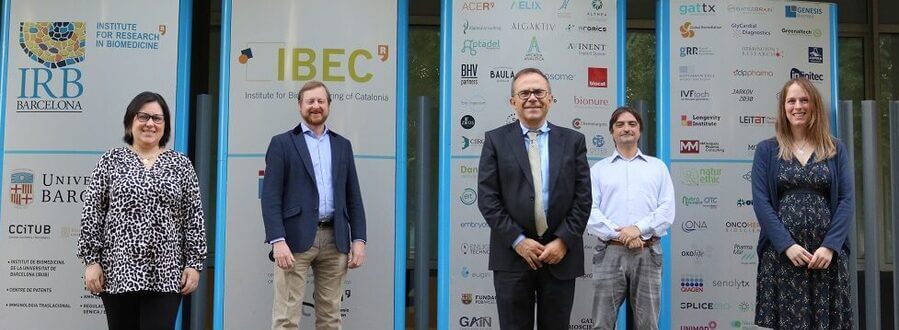
Vitala, a spin-off from IBEC to offer innovative and more ethical solutions in health research
Vitala Technologies, a biotechnology-based company born in the Institute for Bioengineering of Catalonia (IBEC), located in the Barcelona Science Park, will offer innovative solutions for the analysis of drugs during their development, as well as the possibility to know in advance and in a personalized way, what will be the response of a patient to a certain treatment. The spin-off offers more sensitive, low-cost and bioethical techniques than the existing ones. Among its future services, Vitala is exploring entering other markets such as the analysis of biological samples, cosmetics and the agri-food market.
The pandemic caused by the coronavirus SARS-CoV-2 has highlighted, more than ever, the need for rapid, sensitive and effective methods in the selection of drugs during their development that accelerate the arrival on the market of safe and effective drugs, useful in the response to growing health problems. With this ambition, Vitala Technologies, an IBEC spin-off with private participation, was born in the city of Barcelona, .
Together, doctors Irene Marco-Rius and Maria Alejandra Ortega, ICREA Research Professor Javier Ramón, and their associates from Lotus Partners, a private entity that accompanies the development of companies, provide technology to help in the selection of the best drugs to bring to the market and offer solutions to health challenges.
Vitala combines innovative bioengineering technologies such as organs-on-a-chip and advanced imaging techniques, to offer unprecedented value in preclinical therapeutic compound research, as well as in the selection of the best drugs to be used in the clinic.
The spin-off, with the participation of IBEC and private partners, meets market needs thanks to more sensitive, low-cost and bioethical techniques than the existing ones. In this way, Vitala Technologies aims to accelerate and optimize the identification of drugs to bring to the market, significantly reducing the number of animals used for this purpose, as well as providing value in the personalized study of treatments for diseases such as cancer, diabetes, or liver diseases.
Among the founders of the company is Irene Marco-Rius, junior principal investigator at IBEC, who represents a case of excellence in research with international experience at Cambridge (UK), University of California San Francisco (USA) and Heidelberg (Germany). She explains the Vitala Technologies formula: “combine state-of-the-art technologies, such as organs-on-a-chip, MRI and advanced tools for data analysis, to improve drugs development process and personalized medicine”.
Among its services, Vitala also offers the possibility of testing drugs in these mini-organ models built from samples of real patients, to evaluate in a personalized way treatments for complex diseases such as cancer, diabetes or diseases associated with the liver.
Thanks to cutting-edge techniques, researchers are able to measure the effectiveness of a drug, with a sensitivity of up to 10,000 times higher than what is available in the market. And if we add to all this the assessment of the results through advanced data analysis processes, we arrive at a cycle of scientific and medical testing much superior than that offered by the pharmaceutical-health sector at the moment.
With this proposal, Vitala Technologies is committed to a unique market value that seeks to revolutionize one of the fastest growing sectors, that of personalized, low-cost and fast health.
“Vitala was born from our desire to bring the state-of-the-art technology developed in our laboratory closer to society without delay”, says Irene Marco-Rius, principal researcher at IBEC and co-founder of Vitala.
“The birth of this company also contributes to IBEC’s final objective: to help finding real solutions to health problems using bioengineering”, says Josep Samitier, director of IBEC.
“Vitala will bring high-level research closer to society to solve current problems in the health sector, which have been accentuated in the last two years of the pandemic. We want to be the alternative to conventional analysis methods incorporating an innovative and bioethical methodology”, says María Alejandra Ortega, researcher at IBEC, co-founder and director of Operations of Vitala.
“We want to help positioning Vitala as a thriving global player in the biotech testing industry”, says Luca Venza, managing director of Lotus Partners, partner of Vitala Technologies




